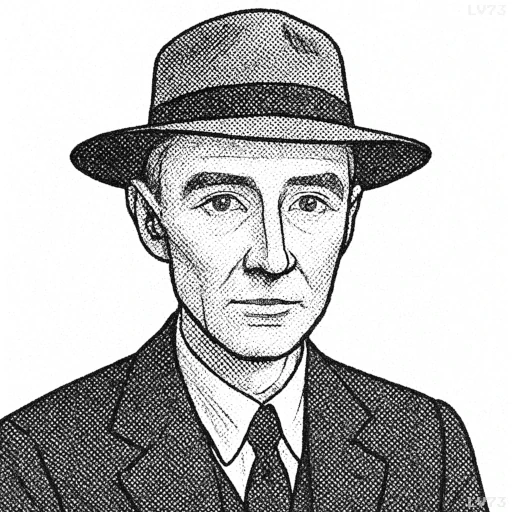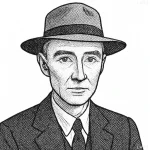“In the spring of 1929, I returned to the United States. I was homesick for this country. I had learned in my student days a great deal about the new physics. I wanted to pursue this myself, to explain it, and to foster its cultivation.”

- April 22, 1904 – February 18, 1967
- American
- Theoretical Physicist, Scientific Director of the Manhattan Project, “Father of the Atomic Bomb”
table of contents
Quote
“In the spring of 1929, I returned to the United States. I was homesick for this country. I had learned in my student days a great deal about the new physics. I wanted to pursue this myself, to explain it, and to foster its cultivation.”
Explanation
This quote reflects a pivotal turning point in Oppenheimer’s early career, as he returned to the United States after advanced studies in Europe, particularly in Germany and the Netherlands, where the foundations of quantum mechanics were being laid. His homesickness signals a deep connection to his country, but also a desire to bring home the revolutionary knowledge he had gained abroad. His intent “to pursue, explain, and foster” the new physics demonstrates both personal ambition and a sense of responsibility to cultivate a scientific community in America.
The “new physics” refers to the radical developments of the 1920s, such as wave mechanics, matrix mechanics, and the uncertainty principle—ideas that were reshaping the very understanding of nature at the subatomic level. At that time, the United States was still lagging behind Europe in theoretical physics, and Oppenheimer saw an opportunity to help bridge that gap, becoming a key figure in educating a generation of American physicists and helping to establish the U.S. as a global center of scientific research.
Today, this quote highlights the transformative power of returning knowledge to one’s own culture and institutions. It illustrates the enduring importance of scholars who not only innovate, but also teach and inspire, ensuring that groundbreaking ideas take root and flourish. Oppenheimer’s vision helped lay the intellectual groundwork that would later support one of the most ambitious scientific efforts in history—the Manhattan Project.
Would you like to share your impressions or related stories about this quote in the comments section?

